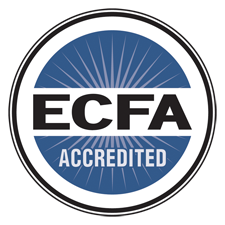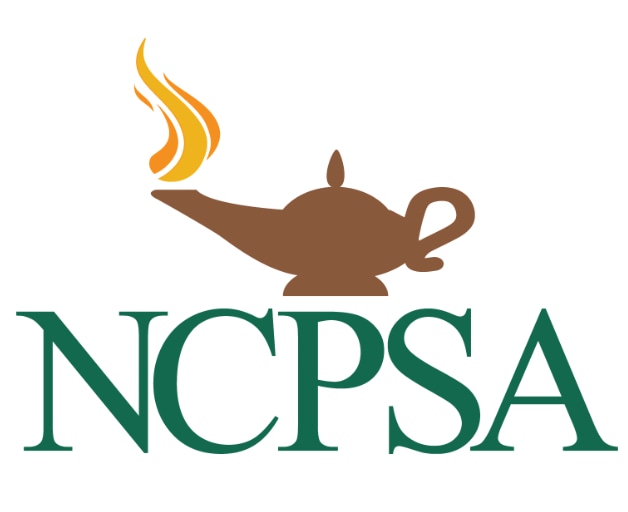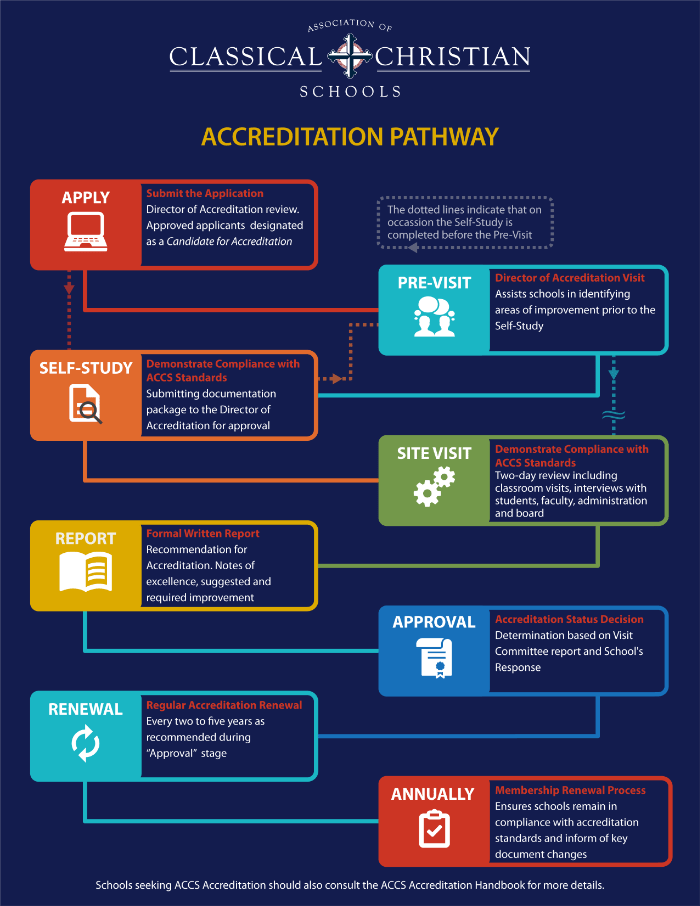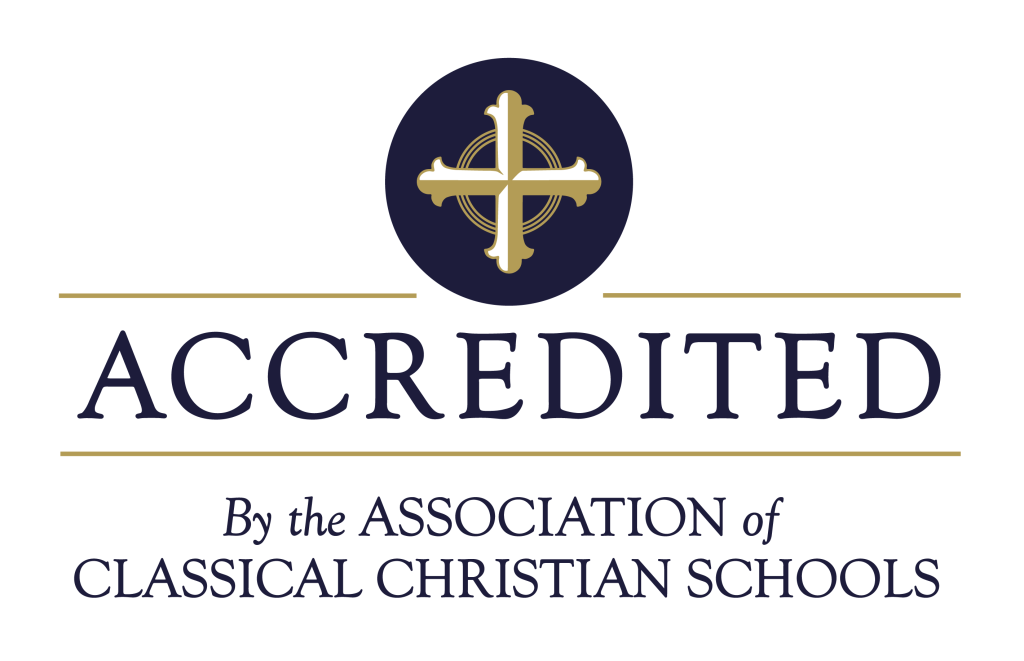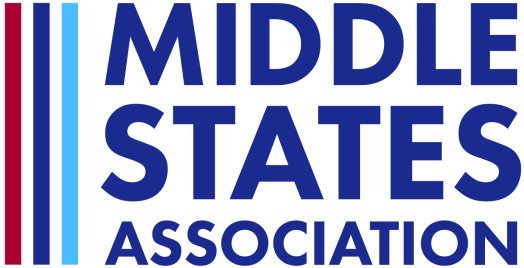Promoting Standards of
Excellence
We combine traditional method-neutral accreditation with classical academic standards. This results in both accreditation and diploma authorization.
Preserving the Classical
Tradition
ACCS accreditation allows schools to freely pursue a traditional liberal arts education while receiving recognition from state, national, and international accrediting organizations.
Pursuing Christ and
His Kingdom
During the accreditation process, ACCS partners with your school to remain steadfast, uncompromising, and Christ-centered.
Widely Recognized
ACCS Accreditation opens doors for your school through partnerships with national accrediting organizations. We have multiple co-operative agreements and co-accreditations that provide recognition for ACCS-accredited schools. State and regional organizations also recognize ACCS Accreditation and provide approval for school choice funding, credibility for college acceptance, and other benefits.
Different Schools, Foundational Standards
We emphasize the foundational principles of classical Christian education. Our standards refer to classical methods, Christian commitment, and organizational stability. We recognize schools that serve k-6, k-8, 7-12, 9-12, and of course, k-12, and we help schools from all four generations of classical Christian education to improve.
Qualified Diplomas for Graduates
ACCS Accreditation, for k-12 schools, comes with ACCS Diploma Recognition.
Stamp of Approval for Parents and Colleges
Knowing that their child’s school has met outside standards is an encouragement to parents. Many parents and colleges seek ACCS accreditation. Some colleges offer exclusive scholarships to ACCS alumni.
Read this document from ACCS: A School You’d Want for Your Child.
Teacher Certification
Open a path of growth for your teachers through teacher certification! All teachers at ACCS-accredited schools go through the process of certification at their own school. Certification programs are approved and authorized by the ACCS.
Find Out More
Hear testimonials, review the accreditation process, learn about state recognition of ACCS Accreditation, and see school membership in a list of established associations.
ACCS member schools may apply to become candidates for ACCS accreditation. Through a process of self-study and onsite visits, ACCS accreditation verifies the classical nature of the school’s teaching to ensure that it meets a foundational set of requirements.
When your school is accepted to Candidate status, you gain a partner in ACCS – we are committed to helping your school improve. We will work together to ensure you are prepared for each step of the accreditation process.
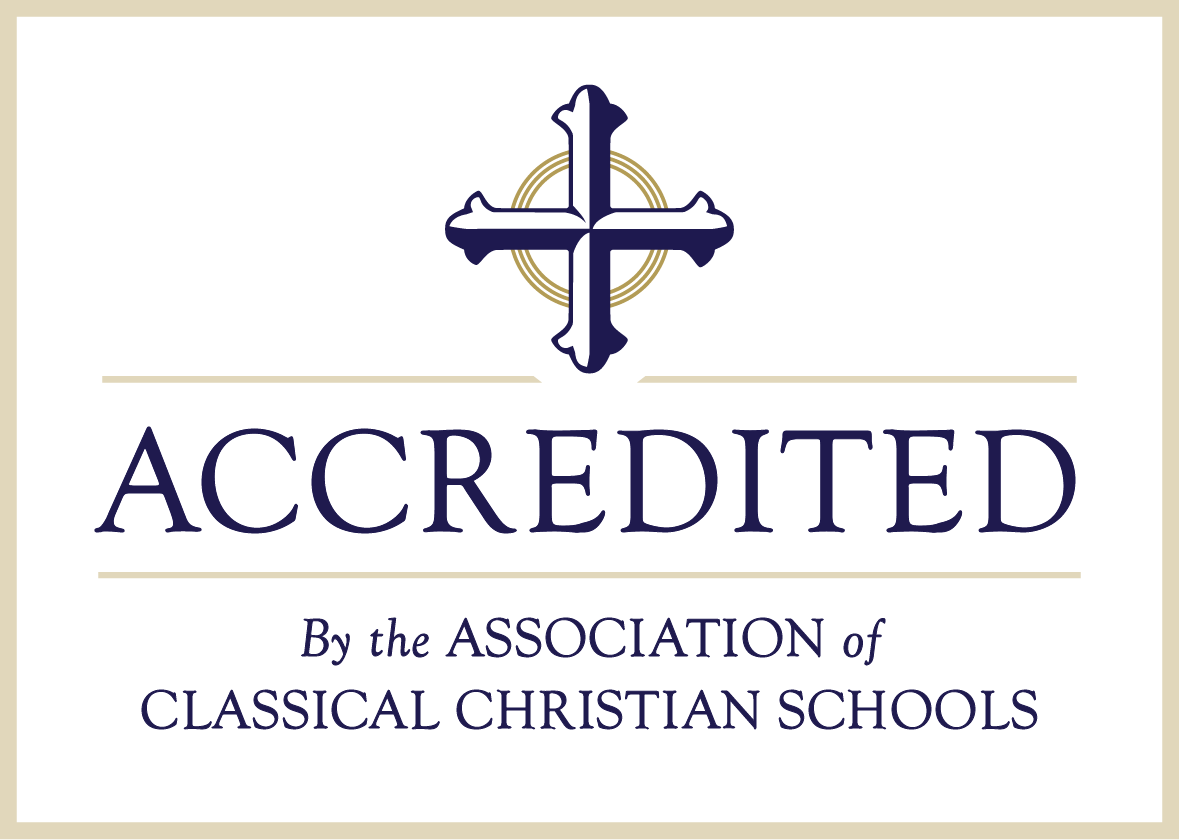
Accreditation Stages
ACCS accreditation follows four general stages:
- The Pre-visit by our Director of Accreditation
- The Self-Study: evaluating your school by the Accreditation Standards
- The School Visit: evaluating your school by the Accreditation Team
- The Post-Visit Evaluation Report with recommendations
The process generally takes 12 – 24 months to complete. The application, application instructions, and additional accreditation details are contained in the Accreditation Handbook, which you can request using the link below.
Accreditation Length
The length is somewhat dependent on the school. Typically, the entire process requires 18 months. On average, schools need one calendar year to complete the self-study. However, if the school can complete the self-study in less than one year, it is possible to complete the entire accreditation process in one academic year.
Accreditation Cost
We encourage schools to budget $7,000, which should cover all costs during the accreditation process. This includes the first half and second half of the accreditation fee, along with the expenses of a previsit and committee visit.
☩ If you would like more details about Accreditation, see the ACCS Accreditation Standards or contact Tom Spencer, the Director of Accreditation.
Step 1: Apply to Become an Accreditation Candidate
Prerequisite: Active ACCS Membership
To start the application process, request the Accreditation Handbook.
Here you’ll find the application and the details you need to know to successfully complete the process.
Step 2: Host a Previsit
Prerequisite: Approved Candidate for Accreditation
Once approved as a candidate for ACCS accreditation, schools schedule a one-day site visit with the ACCS director of accreditation.
Step 3: Complete Your Self-Study
Prerequisite: Approved Candidate for Accreditation
Candidate schools receive instruction helpful to complete their self-study. Schools have up to one year to complete the self-study.
Step 4: Host an Accreditation Committee Visit
Prerequisite: Self-study has been reviewed and approved
This two-day, on-site review by three experienced Heads of School includes classroom visits and interviews with students, faculty, administration and board.
Step 5: Decision on Accreditation
Prerequisite: Draft accreditation report reviewed by school
An ad-hoc committee will review the draft accreditation report and school’s response to the report. Initial accreditation may be awarded for up to two years.
ACCS accreditation measures the consistent implementation of a classical Christian philosophy of education throughout the entire school organization, including:
- Student participation, conduct, and development.
- Staff training.
- Parent-teacher relations.
- Operational and financial policies.
- Community support.
- The overall spiritual demeanor in the school classrooms.
- The integration of Scripture throughout their school’s curricula.
- Conformity with classical Christian methods in their classrooms.
- School board oversight to classroom pedagogy.
The Standards for the ACCS accreditation program are available to all. The Accreditation Handbook, which contains all of the information necessary for schools deciding whether or not to seek accreditation, is available by request.
Note: This standards document is excerpted from the complete Accreditation Handbook. Page numbers in the standards document reflect the pages excerpted from the complete handbook. The standards document contains only the standards for accreditation. It does not contain the application for school accreditation or other materials required for ACCS school accreditation. Request the complete Accreditation Handbook for these materials.
Conventional accreditors look only at operational conformance to the school’s documented form. They do not specify a program of study. The ACCS is one of a few accreditors that also specify an educational form– classical Christian education.
When parents choose an ACCS Accredited school, they are assured that the school meets certain standards of excellence for their operational practices and that the school graduates students who have completed a classical Christian course of study.
As with other schools that practice a particular academic form–International Baccalaureate, Accelerated Christian Education, Waldorf, or Montessori schools for example–another qualification is necessary.
In the case of the ACCS, we use diploma recognition to help parents and colleges know that we have reviewed the school’s classical Christian program and classrooms and we found them to meet classical Christian standards. Once accredited, ACCS schools offer diplomas that are authorized to bear the seal “The ACCS recognizes this diploma under our standards for a Classical Christian course of study.”
Teacher certification verifies the presence of demonstrable philosophical understanding and competent teaching skills in the one certified. The ACCS Teacher Certification program enables teachers to attain the highest level of classical Christian instruction under the supervision of their school’s administrator, while providing a long-term independent record of that accomplishment with ACCS, as well as a certificate of achievement for each level of proficiency attained.
ACCS-accredited schools should contact the Director of Accreditation Tom Spencer at [email protected] for more information or any questions about ACCS teacher certification.
Accredited schools can add their certified teachers to our Member Resource Center (MRC) and receive printed certificates.
Note: The Foundations Track at the ACCS annual Repairing the Ruins Conference is helpful for achieving ACCS Teacher Certification. Find out more by contacting us at [email protected].
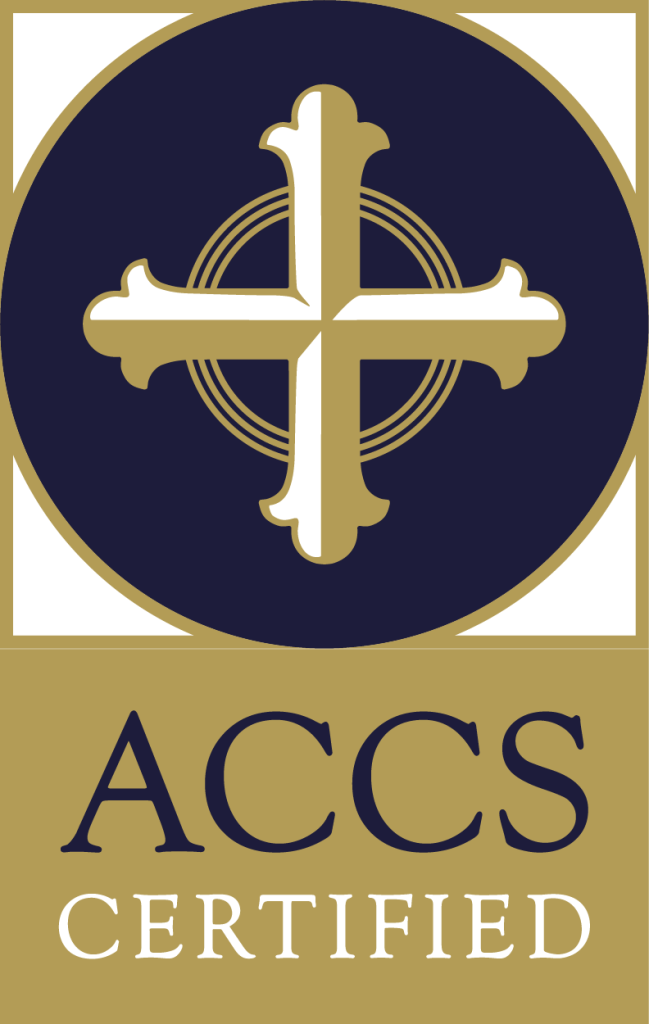
The classical Christian movement is unique from other schools. As an accreditor of those schools, it is important that we understand this history, and have a plan and vision to work with schools where they are–whether schools have chosen a particular type of classical Christian model by choice and design, or whether they would like to make changes but have obstacles to overcome.
The ACCS was there to help build a path forward for our first schools, and we are committed to building as many pathways as necessary to enable Christian parents to join us in the renewal of classical Christian education.
Read “A Short History of Classical Christian Education’s Recovery“
ACCS State & National Recognition
Benefiting Your School In Turn
Read more about ACCS recognitions and cooperative agreements.

